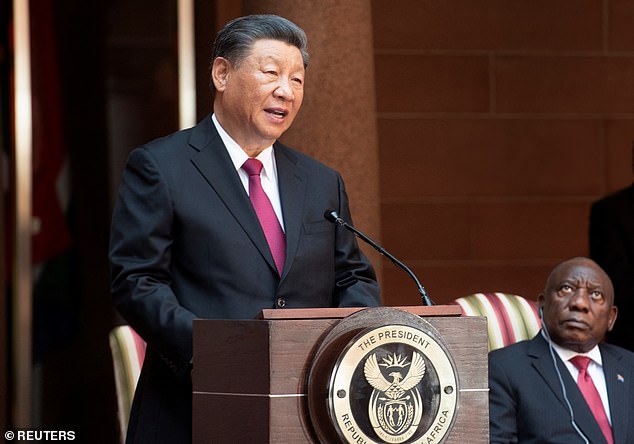aziqbal
SENIOR MEMBER

- Joined
- Aug 26, 2010
- Messages
- 7,399
- Reaction score
- -10
- Country
- Location
The Chinese spy 'using LinkedIn to steal British state secrets':
How Beijing intelligence operative 'targeted THOUSANDS of UK officials using string of fake profiles in astonishing bid to lure them into handing over classified documents'
- The Beijing-based secret agent is mainly operating under the alias Robin Zhang
A Chinese spy is using fake LinkedIn profiles to lure thousands of British officials into handing over state secrets in exchange for cash and flashy business deals, it has been reported.
The sole Beijing operative is said to have used a raft of fake names and created sham companies to target civil servants, scientists and even security officials into handing over classified Government information on the social media site for professionals.
According to an investigation carried out by The Times, the secret agent is mainly operating under the alias Robin Zhang and is thought to be one of the most prolific spies working in the UK in years, Western security officials have said.
Other pseudonyms used included names such as Eric Chen Yixi, Robin Cao, Lincoln Lam, John Lee and Eric Kim. The profiles, which either used stock images or pictures of innocent people, claimed to work in Shanghai's security sector.
The man, whose undercover work is said to have been at play for at least five years, is thought to be working from a desk in China's capital, believed to be linked with the Chinese Ministry of State Security’s headquarters in the capital.
Some fell for his ploy, sending him their CV in anticipation of private-sector work. Another said the user had been 'unprofessional and pushy' before offering money for information on the country's relationship with China.
Amongst those targeted, were think tank researchers and academics, thought to be more vulnerable to infiltrators like Zhang.

+5
View gallery

+5
View gallery

+5
View gallery
The newspaper revealed the spy made up security companies and websites so he looked more credible when he approached his targets. He even pretended to attend a London university.
On one occasion man, whose real identity cannot be published as it would put spies in Western countries at risk, offered to pay £8,000 to a recruitment consultant every time they gave details of candidates who worked in intelligence services.
Former colonel Philip Ingram, who specialised in cyber intelligence and the use of chemical, biological, radiological and nuclear weapons, said he had a request from someone going under the name 'Robin' five years ago.
After accepting, he was quickly asked to write a report on how British counterterrorism works and asked for information that 'isn't easily accessible to anyone'. His suspicions were raised after finding no details about the company 'Robin' allegedly worked.
'I’m certain there’s an entire department at MSS that is using these tactics,' he told the Times. The colonel ended communication after he was asked to go to China.
Security minister Tom Tugendhat told the paper: 'It’s not just government employees who need to exercise caution, it’s businesses with commercially sensitive information, as well as researchers and academics.'
He warned that other British civilians using LinkedIn, the world's largest professional networking site with more than 930 million users, should be aware.
The revelation comes weeks after Parliament's intelligence watchdog warned that Chinese spies are 'prolifically and aggressively' targeting the UK.
The Intelligence and Security Committee said that Beijing was managing to penetrate 'every sector of the economy' before criticising the Government's response to the threat by questioning the trade-off between economic interests and security concerns.
The watchdog also raised concerns that Chinese influence in UK's university and warned of the country's intention to become a 'permanent and significant player' in the civil nuclear energy industry.
The 207-page report, published in July added that the UK is of 'significant interest to China when it comes to espionage and interference', placing the country 'just below China's top priority targets'.
It said: 'China's state intelligence apparatus – almost certainly the largest in the world with hundreds of thousands of civil intelligence officers…. targets the UK and its interests prolifically and aggressively, and presents a challenge for our Agencies to cover.'
A spokesperson for LinkedIn told MailOnline: 'Creating a fake account is a clear violation of our terms of service.
'Our Threat Prevention & Defense team actively seeks out signs of state-sponsored activity and removes fake accounts using information we uncover and intelligence from a variety of sources, including government agencies.
'Our Transparency Report details the actions that we take to keep LinkedIn a safe place where real people can connect with professionals they know and trust.'
MailOnline has contacted the Home Office.

Chinese spy 'using LinkedIn to steal British secrets'
The sole Beijing operative is said to have used a raft of fake names to target civil servants, scientists and even security officials into handing over classified Government information.
